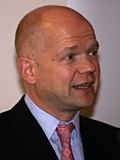This article has multiple issues. Please help improve it or discuss these issues on the talk page . (Learn how and when to remove these messages)
|
| |||||||||||||||||||||||||||||||||||||||||||||
All 36 metropolitan boroughs, 27 out of 46 unitary authorities, 89 out of 238 English districts, 1 directly elected mayor and 1 regional assembly | |||||||||||||||||||||||||||||||||||||||||||||
|---|---|---|---|---|---|---|---|---|---|---|---|---|---|---|---|---|---|---|---|---|---|---|---|---|---|---|---|---|---|---|---|---|---|---|---|---|---|---|---|---|---|---|---|---|---|
| |||||||||||||||||||||||||||||||||||||||||||||
 Colours denote the winning party, as shown in the main table of results. | |||||||||||||||||||||||||||||||||||||||||||||
The 2000 United Kingdom local elections were held on Thursday 4 May 2000. A third of the seats on each of the Metropolitan Boroughs were elected along with elections in many of the unitary authorities and district councils. There were no elections in Scotland, Wales or Northern Ireland. On the same day, a parliamentary by-election took place in the Romsey constituency in southern England; the Liberal Democrats won the seat from the Conservatives.


